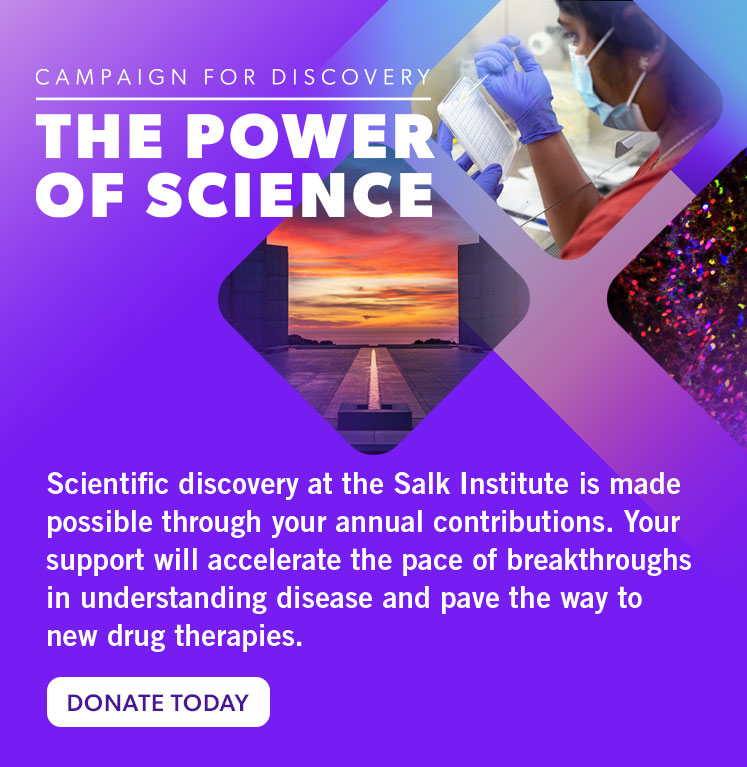Belonging Rising Stars and DISCOVER programs provide new opportunities for trainees from underserved backgrounds
The Salk Institute recently hosted two inaugural events designed to enhance diversity within the scientific community: the Rising Stars Symposium and the Diverse Inclusive Scientific Community Offering a Vision for an Ecosystem Reimagined (DISCOVER) Symposium. These programs support researchers from underrepresented populations through research presentations, mentorship opportunities, and novel recruitment mechanisms.
The Rising Stars Symposium, held on April 10, recognized exceptional postdoctoral trainees for their contributions to the scientific workforce. Eight postdoctoral researchers from various institutions around the country were selected to present their research, network with the Salk community, and engage in one-on-one mentorship opportunities with Salk faculty members. This symposium not only celebrated their scientific achievements but also served as an avenue to increase diversity at the faculty level—at Salk and beyond.
On April 23, the DISCOVER Symposium brought 10 graduate students from across the United States to explore postdoctoral training opportunities at Salk. This unique event allowed them to present their research, connect with peers, and participate in professional development panels. The symposium also facilitated mentor-mentee pairings across various disciplines of biology, a format that is not typically found in traditional postdoctoral interview settings. Seven of the 10 awardees extended their stay to interview with additional labs.
“The DISCOVER program is more about creating an incentivization structure where we celebrate not only the scientific accomplishments of individuals but also what they have done to serve their community and uplift others around them,” says Professor Kay Tye, Wylie Vale Chair at Salk and Howard Hughes Medical Institute investigator, who cofounded the DISCOVER program with Esteban Zepeda.

“By providing mentorship opportunities for the next generation of researchers, we are building a more inclusive scientific community at Salk and beyond.”
–Associate Professor Dmitry Lyumkis
The success of both events was evident in the enthusiastic participation of Salk faculty and community members from numerous labs and departments. Participants expressed their excitement about presenting their research and valued the opportunity to be mentored by Salk’s esteemed faculty. The events highlighted the Institute’s commitment to creating a supportive and inclusive environment.
“These programs were designed to further diversify the research community at Salk and to support scientists from underrepresented populations at every stage of their careers,” says Associate Professor Dmitry Lyumkis, Hearst Foundation Developmental Chair at Salk. “By providing mentorship opportunities for the next generation of researchers, we are building a more inclusive scientific community at Salk and beyond.”
Tye and Lyumkis, who organized these programs, also expressed their gratitude to everyone who helped make the programs possible, particularly Salk’s Office of People & Culture, Justice, Equity, Diversity, and Inclusion (JEDI) Council, Events team, and Communications team.
Featured Stories
 Getting to the root of Alzheimer’sSalk scientists are teaming up to understand brain aging. By collaborating across disciplines like genetics, neuroscience, and immunology, our researchers are uniquely positioned to lead us into a future of healthier aging and effective therapeutics for Alzheimer’s.
Getting to the root of Alzheimer’sSalk scientists are teaming up to understand brain aging. By collaborating across disciplines like genetics, neuroscience, and immunology, our researchers are uniquely positioned to lead us into a future of healthier aging and effective therapeutics for Alzheimer’s.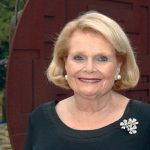 Salk mourns the loss of Joan JacobsThe Salk Institute lost one of its greatest supporters and one of San Diego’s most generous philanthropists when Joan Jacobs died on May 6, 2024, in La Jolla, California. She was 91 years old.
Salk mourns the loss of Joan JacobsThe Salk Institute lost one of its greatest supporters and one of San Diego’s most generous philanthropists when Joan Jacobs died on May 6, 2024, in La Jolla, California. She was 91 years old.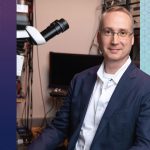 Axel Nimmerjahn— Widening perspectives through plane windows and microscope lensesInside Salk sat down with Nimmerjahn to hear how he went from curious child to world renowned researcher. Now a professor at Salk, he studies the central nervous system and designs new tools—like mini microscopes!—to study the system's various cell types.
Axel Nimmerjahn— Widening perspectives through plane windows and microscope lensesInside Salk sat down with Nimmerjahn to hear how he went from curious child to world renowned researcher. Now a professor at Salk, he studies the central nervous system and designs new tools—like mini microscopes!—to study the system's various cell types.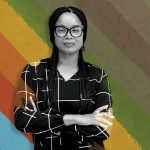 Jálin Johnson— Enhancing equity and inclusion at Salk and beyondOver the course of nearly 30 years dedicated to advocacy work, Jálin B. Johnson has served those in need and has given a voice to the voiceless—a principle that has guided her throughout her career. This commitment continues to shape her work as she steps into the role of director of Salk’s Office of Equity & Inclusion.
Jálin Johnson— Enhancing equity and inclusion at Salk and beyondOver the course of nearly 30 years dedicated to advocacy work, Jálin B. Johnson has served those in need and has given a voice to the voiceless—a principle that has guided her throughout her career. This commitment continues to shape her work as she steps into the role of director of Salk’s Office of Equity & Inclusion.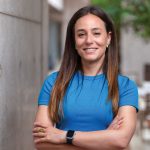 Lara Labarta-Bajo—An immunologist’s journey from Barcelona and ballet to the brainWhether dancing in Spain or surfing in San Diego, Lara Labarta-Bajo has always celebrated the power of the human body. Now a postdoctoral researcher in Associate Professor Nicola Allen’s lab at Salk, she studies how the immune system connects the body to the brain and how this relationship evolves as we age.
Lara Labarta-Bajo—An immunologist’s journey from Barcelona and ballet to the brainWhether dancing in Spain or surfing in San Diego, Lara Labarta-Bajo has always celebrated the power of the human body. Now a postdoctoral researcher in Associate Professor Nicola Allen’s lab at Salk, she studies how the immune system connects the body to the brain and how this relationship evolves as we age. Professor or partner? Luc Jansen’s switch from science to lawDashed dreams of medical school brought Jansen to Salk's campus back in 2003, where he simultaneously contemplated a career in scientific research and a career in big law. Though he decided on law in the end, Jansen's affection for Salk remains as he now hosts Salk gatherings in his New York City office and excitedly shares the enduring importance of basic science.
Professor or partner? Luc Jansen’s switch from science to lawDashed dreams of medical school brought Jansen to Salk's campus back in 2003, where he simultaneously contemplated a career in scientific research and a career in big law. Though he decided on law in the end, Jansen's affection for Salk remains as he now hosts Salk gatherings in his New York City office and excitedly shares the enduring importance of basic science.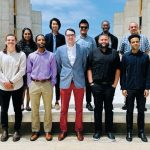 Rising Stars and DISCOVER programs provide new opportunities for trainees from underserved backgroundsThe Salk Institute recently hosted two inaugural events designed to enhance diversity within the scientific community: the Rising Stars Symposium and the Diverse Inclusive Scientific Community Offering a Vision for an Ecosystem Reimagined (DISCOVER) Symposium.
Rising Stars and DISCOVER programs provide new opportunities for trainees from underserved backgroundsThe Salk Institute recently hosted two inaugural events designed to enhance diversity within the scientific community: the Rising Stars Symposium and the Diverse Inclusive Scientific Community Offering a Vision for an Ecosystem Reimagined (DISCOVER) Symposium.






















































